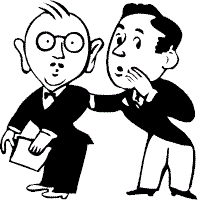This is a list of words and expressions related to health and the topic “At the doctor’s” that my students of 4º ESO selected to include for the exam. We worked in groups of 5 students with a picture dictionary (Word by Word. Picture Dictionary by Steven J. Molinsky and Bill Bliss. Prentice Hall). Each group had to make sure that the five students learnt all the words and practised the dialogues of the section that they were given. Finally, they had to make a selection of the most difficult words or expressions to teach the rest of the class.
This is the list with all the words and some pictures taken from the already mentioned dictionary, which I highly recommend to all my students:
- Backache = dolor de espalda
- sore throat = dolor de garganta
- cold = resfriado
- sunburn = quemadura del sol
- stiff neck = contractura del cuello
- wart = verruga
- chills = escalofríos
- hiccups = hipo
- shortness of breath = que te falta la respiración
- faint = desmayarse
- wheeze = respirar con dificultad
- sneeze = estornudar
- bloated = estar hinchado
- dizzy = mareado
- burp = eructar
- bleed = sangrar
- twist = torcerse
- sprain = hacerse un esguince
- scratch = arañazo
- scrape = rozadura
- scale = peso, balanza
- drill = taladrar
- needle = aguja
- stitches = puntos de sutura
- sling = cabestrillo
- crutches = muletas
- counseling = consulta
- rest in bed = guardar cama
- bed pan = cuña
- call button = botón de llamada
- Eye drops – colirio, gotas ojos
- heating pad – manta eléctrica
- ice pack – bolsa de hielo
- wheelchair – silla de ruedas
- tablespoon – cuchara sopera






















